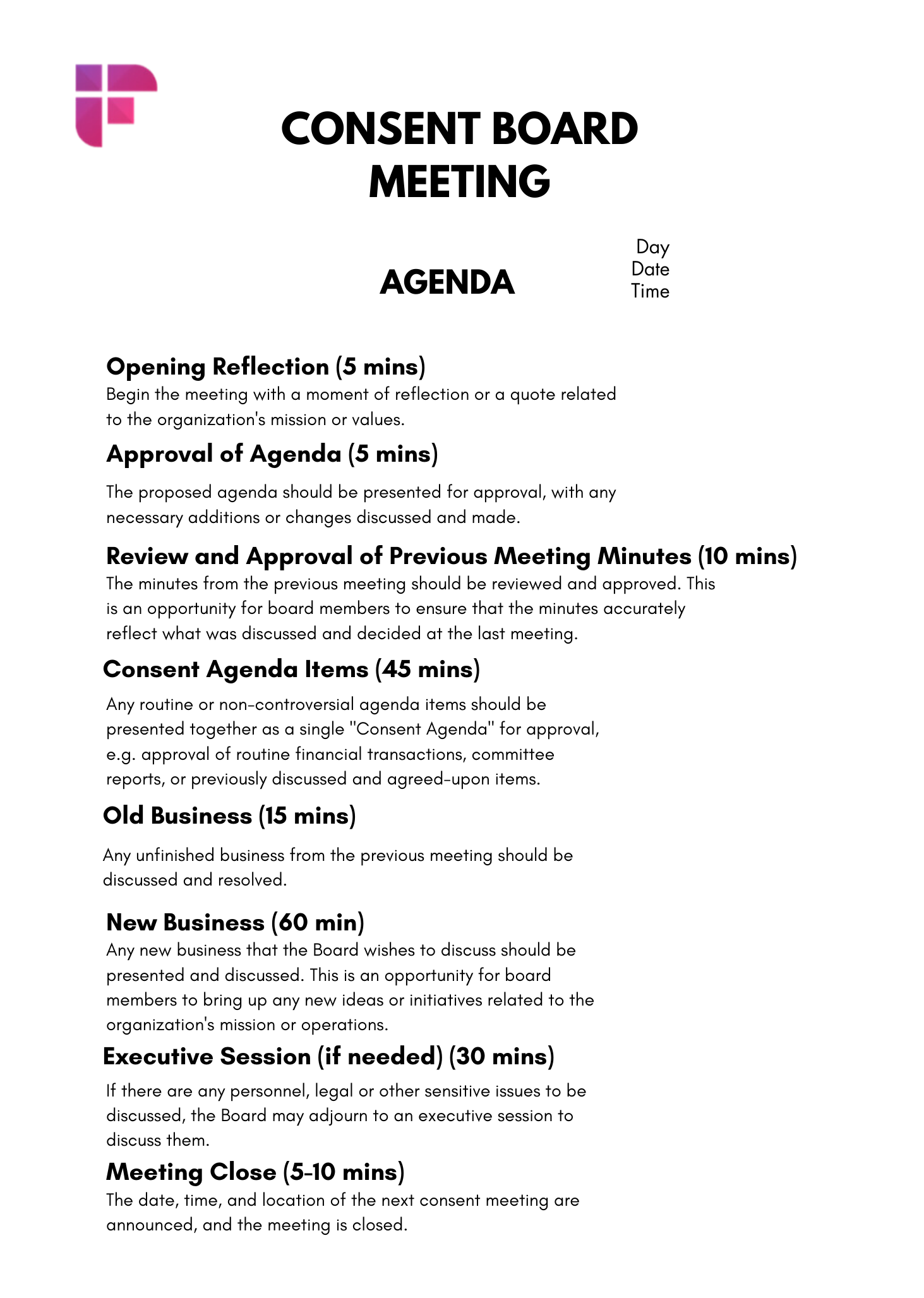Introduction
A well-structured agenda is essential for a productive and efficient board meeting. It serves as a roadmap, guiding the discussion and ensuring that all important topics are covered. Here’s a sample agenda for a board meeting that you can adapt to your specific needs.
Body
1. Welcome and Introductions
2. Approval of Minutes from the Previous Meeting

Image Source: fireflies.ai
3. Reports from Officers and Committees
4. Old Business
5. New Business
6. Financial Matters
7. Strategic Planning
8. Other Business
9. Announcements
10. Adjournment
Conclusion
By following this sample agenda, you can ensure that your board meetings are well-organized, productive, and focused on achieving your organization’s goals. Remember to tailor the agenda to your specific needs and to allocate sufficient time for each item.
FAQs
1. How often should board meetings be held? The frequency of board meetings depends on the organization’s size, complexity, and needs. However, most organizations typically hold board meetings quarterly or monthly.
2. Who should be invited to board meetings? Board meetings should be attended by members of the board of directors, as well as any executive staff members who need to be informed of decisions made at the meeting.
3. How long should board meetings last? Board meetings can vary in length depending on the amount of business to be discussed. However, it’s generally recommended to keep meetings to a reasonable length to avoid fatigue and ensure that everyone remains focused.
4. What should be done with the minutes of the meeting? The minutes of the meeting should be distributed to all board members and kept on file for future reference.
5. How can board meetings be made more effective? To make board meetings more effective, consider the following tips:
Sample Agenda For Board Meeting